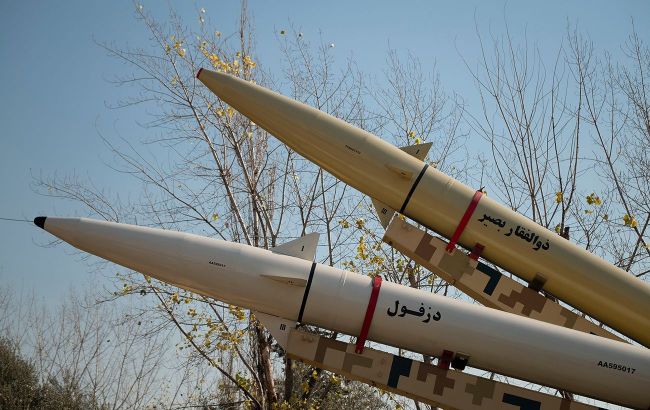Iran transfers hundreds of 700km-range ballistic missiles to Russia, Reuters
 Illustrative photo (Photo: Getty Images)
Illustrative photo (Photo: Getty Images)
Iran allegedly provided Russian occupiers with around 400 ballistic missiles. They are capable of destroying targets up to 700 km away, according to Reuters.
Three unnamed Iranian sources told the media outlet that part of the transferred missiles are from the Fateh-110 short-range ballistic missile family, including the Zolfaghar. Such a missile is capable of destroying targets at distances ranging from 300 to 700 kilometers.
As one of the Iranian sources revealed, the deliveries began in early January after an agreement was reached at meetings between Iranian and Russian military and security service representatives at the end of last year. These meetings took place in Tehran and Moscow.
Another unnamed Iranian military official clarified that there have already been at least four deliveries of missiles. A new transfer is expected next week.
Another official stated that some of the missiles were sent to Russia by ship via the Caspian Sea, while others were transported by plane.
"There will be more shipments. There is no reason to hide this. We are allowed to export weapons to any country that we wish to," he added.
An American official informed Reuters that Washington has seen evidence of active negotiations between Russia and Iran, but there are no signs yet that the deliveries have taken place.
Background
Rumors that Russia wants to obtain Iranian ballistic missiles spread as early as last year.
The information emerged against the backdrop of the active supply of Iranian drones Shahed to Russian occupiers. Recently, Russian soldiers have been using such drones almost daily to strike Ukraine.
In January of this year, the WSJ reported that negotiations between Russia and Iran regarding long-range missiles were actively progressing. Journalists speculated that deliveries could begin as early as spring.
For more details on Iranian missiles for Russia, you can read the material from RBC-Ukraine.

